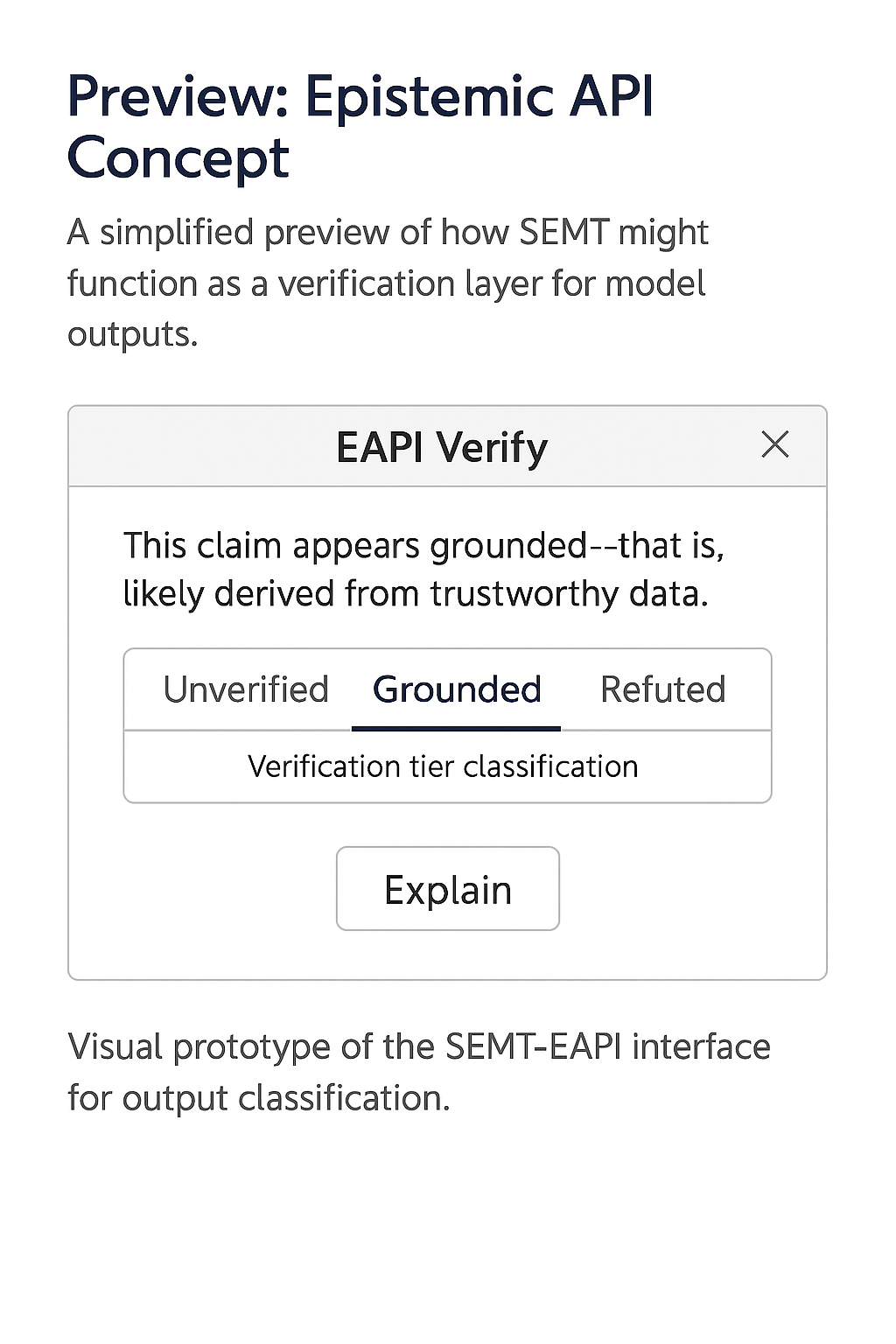Applications of the Structured Epistemic Model of Truth (SEMT)
SEMT is a conceptual framework for modeling structured reasoning under epistemic constraints. It is designed to help researchers and system designers reason about what can be supported, derived, or formally verified — particularly under conditions of limited access or interpretability.
While the model is philosophically grounded, any practical applications remain exploratory. No tool currently claims authority over truth or verification, but some prototypes aim to demonstrate how epistemic filtering might work in bounded settings.
Prototype Directions (Under Development)
Epistemic API (EAPI)
EAPI is an experimental wrapper for language model output. It classifies statements based on their structural verifiability: T₀ (formally provable), T₁ (verifiable or derivable), and ⊬ (unjustified). It is not a fact-checker, source verifier, or definitive arbiter — it simulates what a deterministic classifier might return, based on SEMT’s rules.
The current demo is for protocol illustration only — try the demonstration →
Visual Preview: EAPI Interface
An interface prototype showing how SEMT-style classifications could be layered over language model output for internal analysis:
SEMT Verifier Plugin (Planned)
A conceptual browser or editor plugin designed to tag statements with SEMT classifications. This plugin is not under active development, but remains part of a broader research vision around epistemic traceability in automated systems.
Foundational Exploration
SEMT provides a lens for reframing logical and mathematical questions — such as the Continuum Hypothesis or P ≠ NP — as questions of structural accessibility and layered verifiability. These are conceptual reframings, not technical solutions.
Use Cases (Concept Stage)
- Filtering language model outputs by structural justifiability
- Designing AI modules with constrained epistemic scope
- Framing explainability around verifiability layers
- Teaching formal logic, semantics, or epistemology
Development & Collaboration
Areteco AB welcomes collaboration and dialogue around how SEMT principles might inform more transparent and structurally honest AI systems. Partners from research, systems design, and education are invited to get in touch. → Contact us
Note: All tools mentioned are experimental or conceptual. No claims are made regarding factual accuracy, inference reliability, or production-readiness. SEMT and EAPI remain part of a theoretical research program developed by Areteco AB.
